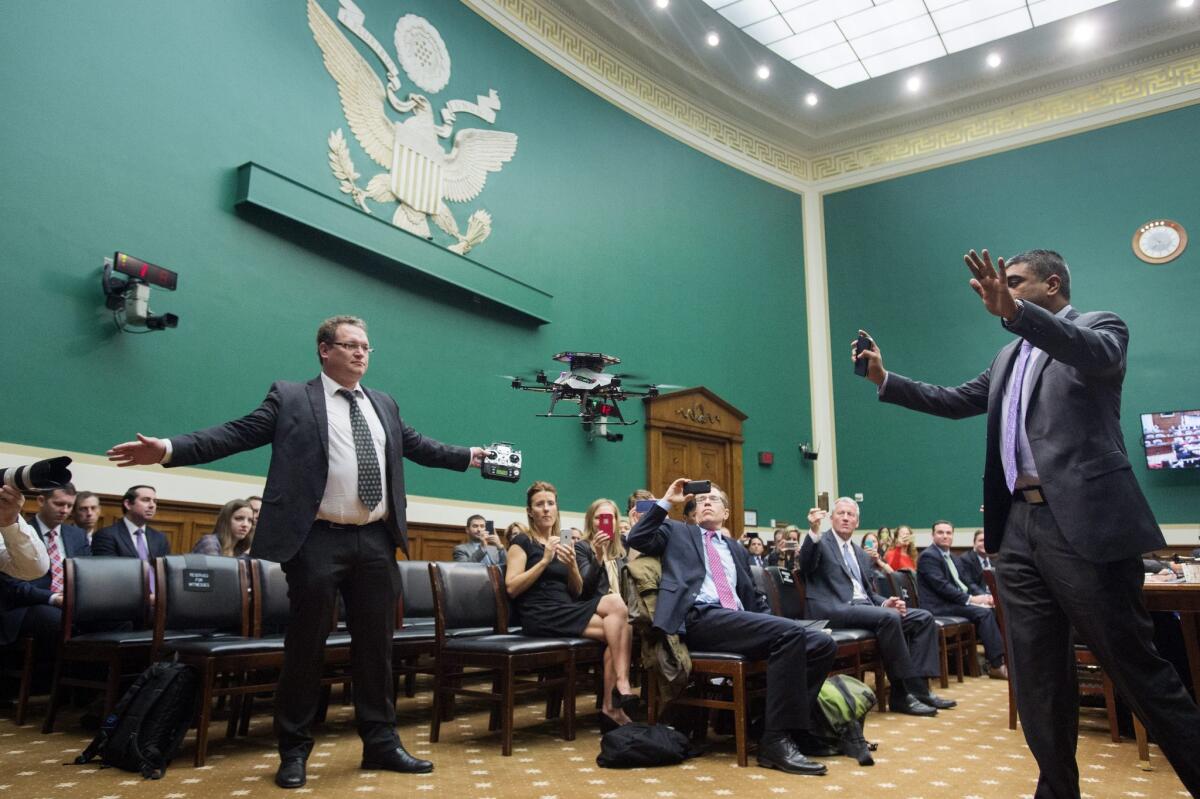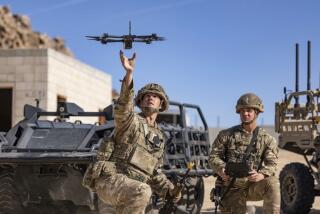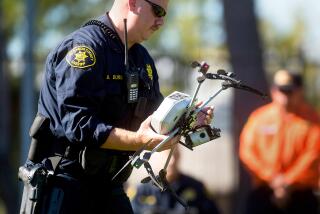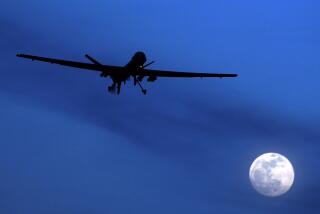Opinion: How to speak drone like a pro

Jan Stumpf, left, CEO of Ascending Technologies, and Anil Nanduri, right, Director, Solutions and Products, Perceptual Computing at Intel; demonstrate the safety features of a drone during a House Energy and Commerce subcommittee.
Like any subculture, the world of drones has its own lexicon. Below are a few of the more useful drone-ish words defined.
The first thing to know is that the word “drone” itself is considered pejorative in the industry (see UAS entry below). But like it or not, it’s become the word most have associated with these flying robots.
DJI: A Chinese drone manufacturer with about 70% of the commercial drone market. As such, it’s an important trendsetter in this burgeoning industry.
Drone racing: Yes, it is a thing. And no surprise here, California is the mecca of drone racing.
Geofencing: This is a virtual fence using GPS that limits where a drone can fly and how high.
Hobbyist: When people reference the “hobbyist community,” it refers to the people who fly drones for the fun of it, whether it be professional models worth thousands of dollars or a $50 Fry’s special.
Line of sight: This refers to the requirement that drone operators must be able to see the drone with their actual eyeballs at all times. Military drone operators — and presumably the drone delivery boys of the future — pilot using GPS technology not unlike what your car navigation system uses. BVLOS may also refer to the view through a drone’s on-board camera, though the range is much more limited.
BVLOS: Beyond visual line of sight. (See line of sight)
Phantom: A very popular camera-equipped commercial drone, manufactured by DJI.
Quadracopter: The most common recreational drone, so-called because it has four rotors. There also are hexacopters and rolling drones. And of course, Roombas, which are essentially drones that do chores.
Section 333 Exemption: Commercial use of drones is generally prohibited in the U.S., but the FAA does allow people to apply for special permission under Section 333 of the FAA Modernization and Reform Act of 2012. Most of the exemptions (see those granted so far, here) are given for the purpose of aerial photography, surveys and monitoring).
TFRs: Temporary flight restrictions. These are issued by the Federal Aviation Administration.
UAS: Unmanned Aircraft System. This is the industry-preferred word for a drone, sometimes referred to as UAVs, or Unmanned Aerial Vehicle. A small UAS, incidentally, is one that weighs 55 pounds or less.
UAV: Unmanned Autonomous Vehicle. This is different from the version above because it refers to a drone that is self-operated.
Follow me @marielgarzaLAT
Follow the Opinion section on Twitter @latimesopinion and Facebook.
More to Read
A cure for the common opinion
Get thought-provoking perspectives with our weekly newsletter.
You may occasionally receive promotional content from the Los Angeles Times.











